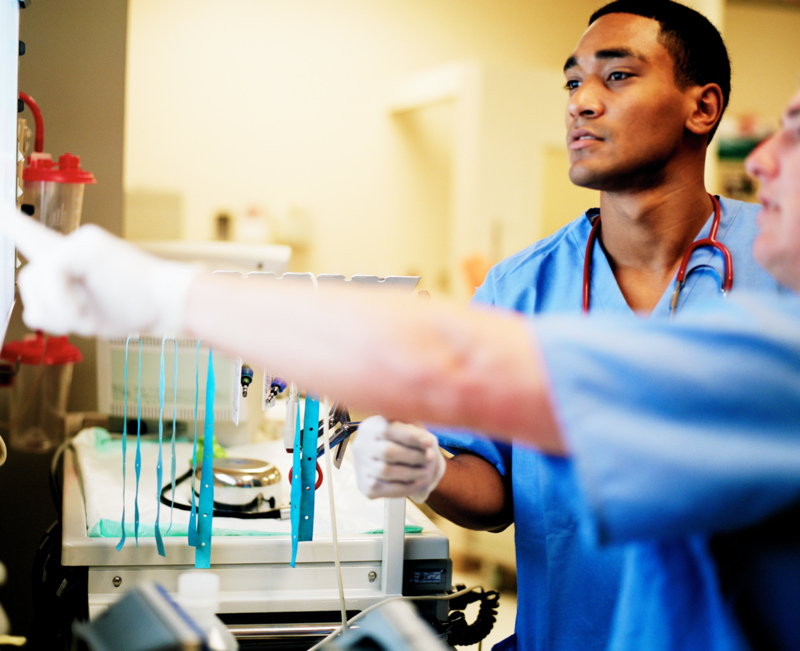
Here are some of the latest health and medical news developments, compiled by the editors of HealthDay:
NIH-Funded Scientists to Restart Embryonic Stem Cell Research
U.S. government officials announced Friday that researchers at the National Institutes of Health (NIH) will resume working with embryonic stem cells after an appeals court issued a temporary suspension of a judge’s recent ban.
Late last month, U.S. District Court Judge Royce Lamberth ruled that federal funding of embryonic stem cell research violated a 1996 law prohibiting the use of taxpayer dollars for such work. The Obama administration appealed that decision.
On Thursday, an appeals court issued a stay on the ban until it could hear full arguments over the next few weeks.
In the meantime, the NIH is lifting its suspension of funding for research using embryonic stem cells, the Associated Press reported.
“We are pleased with the court’s interim ruling, which will allow promising stem cell research to continue” while the court battle goes on, the NIH said in a statement.
According to the AP, researchers who had already received NIH grant money had been told they could work until those funds ran out, but 22 other projects earmarked to get new funding in September had been told to look elsewhere for support.
“I take no solace in the ruling because so much uncertainty remains about the future of human stem cell research,” Dr. George Daley, a leading stem cell researcher at Children’s Hospital Boston, told the AP. “I won’t rest peacefully until there is a clear and unambiguous vote of support from the Congress for this vital research.”
—–
PSA Test Benefits Men at Genetic Risk for Prostate Cancer: Study
Screening tests can detect early prostate cancer in men who are at increased risk due to BRCA gene mutations, according to a British study.
Researchers conducted prostate specific antigen (PSA) tests on 300 men, ages 40 to 69. Those with BRCA gene mutations were more likely to have prostate cancer and were twice as likely to require treatment, BBC News reported.
A BRCA2 mutation could increase prostate cancer risk by up to seven-fold, while a BRCA1 mutation may double the risk in men under 65 years old, the researchers said.
“Although these are early results, it appears that PSA screening is reasonably accurate at predicting potentially aggressive prostate cancer among men at higher risk of the disease due to a genetic predisposition,” said study leader Professor Ros Eeles, of the Institute of Cancer Research and the Royal Marsden Hospital, BBC News reported. “This study provides support for continued screening in men with genetic mutations.”
The preliminary findings appear in the British Journal of Urology International.
BRCA1 and BRCA2 gene mutations have also been linked to increased risk of breast and ovarian cancer.
—–
Certain Imaging Drugs Pose Risk to Kidney Patients: FDA
Some imaging agents injected into patients undergoing MRI scans can cause a rare and sometimes fatal condition in people with kidney disease and should not be used in these patients, says the U.S. Food and Drug Administration.
The agency said Thursday that imaging agents with the chemical gadolinium will now have to carry a strong warning on their labels, the Associated Press reported.
There have been cases where imaging agents with gadolinium caused kidney-disease patients to develop nephrogenic fibrosing dermopathy, which causes hardening of the skin and tissue growth along joints, eyes and internal organs, the FDA said.
There is no treatment for the condition, but kidney transplant has slowed or even reversed it in some patients, the AP reported.
—–
More U.S. Children Being Raised by Grandparents: Study
A growing number of U.S. grandparents are raising their grandchildren and the recession may be a major reason for this trend.
In 2008, about seven million children lived in households that included at least one grandparent, according to a Pew Research Center analysis of U.S. Census Bureau data, the Associated Press reported.
Of those seven million children, 2.9 million were being raised primarily by their grandparents, a 6 percent increase from 2007 and a 16 percent increase from 2000.
“We don’t have the data to explicitly state that this is related to recession, but it’s a very educated guess,” analysis co-author Gretchen Livingston, a senior researcher at Pew, told the AP.

